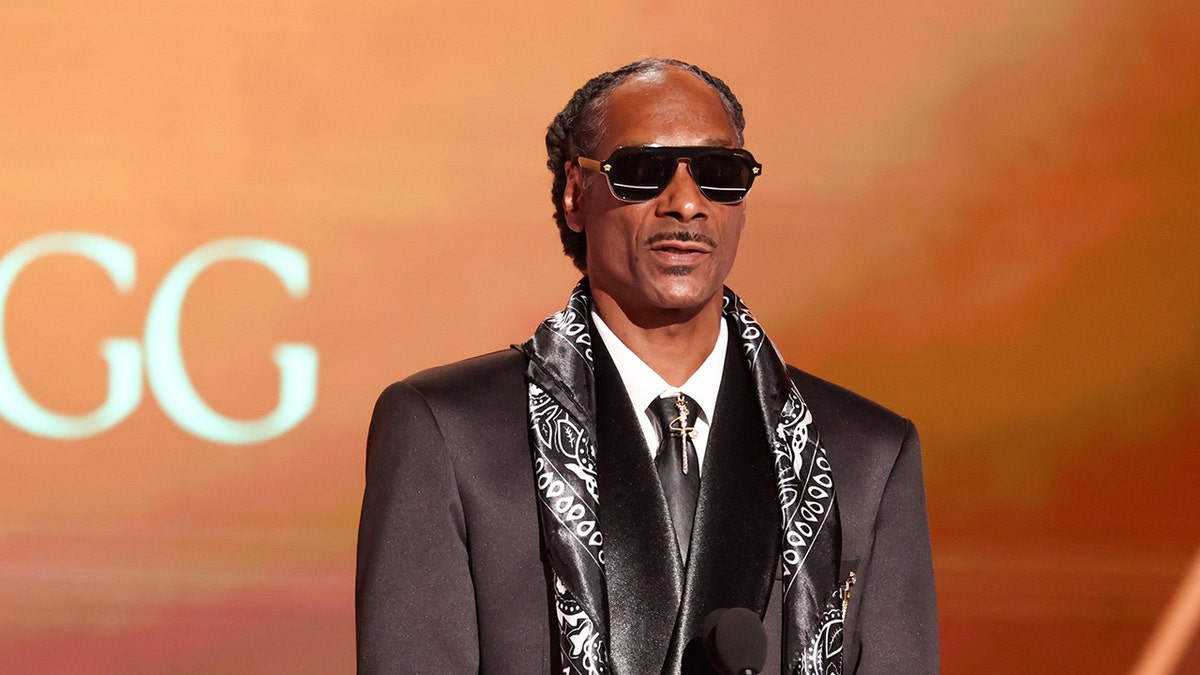Snoop Dogg Shares Grandson’s Confusion Over Same-Sex Couple in Kids’ Movie
In a candid moment on the “It’s Giving” podcast, Snoop Dogg opened up about a surprisingly thought-provoking encounter with his grandson that has since ignited conversations nationwide. The legendary rapper shared how a seemingly innocent movie outing turned into a teachable, yet challenging, moment when his young grandson asked about a same-sex couple featured on-screen.
Snoop explained that while watching Disney and Pixar’s 2022 animated film Lightyear, his grandson observed the story of a lesbian couple raising a child. At one point, the boy looked up at his grandfather with a puzzled expression and asked, “They just said, she and she had a baby — they’re both women. How does she have a baby?”

Caught off guard, Snoop admitted he didn’t have an immediate answer. His reaction highlighted the reality many parents face: explaining complex family dynamics and LGBTQ+ relationships in a way that is age-appropriate yet honest. “I was thrown for a loop,” Snoop said, reflecting on the difficulty of navigating such a delicate topic with a child.
The scene in question marked a milestone for Disney and Pixar. It featured the studio’s first on-screen same-sex couple, signaling a move toward more inclusive storytelling in mainstream children’s media. Initially, the scene had been removed from the theatrical release due to controversy, but after public support and internal advocacy from Pixar employees, it was reinstated. This decision sparked debates across social media and entertainment news outlets, reflecting broader societal discussions on LGBTQ+ visibility and children’s education.
Critics of Snoop Dogg’s viewpoint argue that exposing children to diverse family structures is not only appropriate but beneficial. Studies have shown that early awareness and understanding of different identities can foster empathy, reduce prejudice, and cultivate an inclusive mindset. Supporters of LGBTQ+ representation in media believe that showing children that families come in all shapes and sizes can help normalize diversity from an early age.
On the other hand, Snoop’s concern resonates with many who feel children may not yet have the maturity to fully understand these concepts. They argue that parents should have the right to decide when and how such conversations occur, particularly when it comes to sexuality and relationships. This tension between representation and age-appropriateness reflects an ongoing societal debate on the role of media in shaping children’s understanding of identity and family.
Adding another layer to the discussion, media personalities have weighed in to defend Snoop’s reaction. The hosts of the syndicated radio show The Breakfast Club expressed sympathy for the rapper, noting that parents sometimes want children to enjoy entertainment without immediately confronting complex social topics. They emphasized that children should be allowed to process and learn about such themes at a pace appropriate for their age, supporting parental discretion in guiding these conversations.
This encounter also highlights how children are naturally curious about differences they observe in the world around them. Children notice and question what does not align with their existing understanding, and their questions can open opportunities for meaningful dialogue. Experts in child development encourage honest, simple answers, allowing young children to grasp basic concepts without overwhelming them. In the case of Snoop’s grandson, a straightforward explanation about families being made in different ways could provide clarity without straying into overly complex territory.
For Snoop Dogg, the moment was eye-opening, prompting reflection on how societal shifts and media representation intersect with parenting. The experience underscores that children today are growing up in a world that is increasingly diverse and that exposure to various family dynamics can be both a challenge and an opportunity for growth.
While some may disagree with Snoop’s hesitation, his story resonates with many parents navigating similar conversations. It serves as a reminder of the ongoing dialogue about representation in media, the evolving understanding of family and identity, and the balance between education and age-appropriate content.
As discussions around LGBTQ+ themes in children’s films continue, moments like Snoop Dogg’s experience illuminate the complexities of parenting in a changing cultural landscape. They demonstrate that curiosity, guidance, and open communication are key to helping children understand the world around them, one thoughtful conversation at a time.